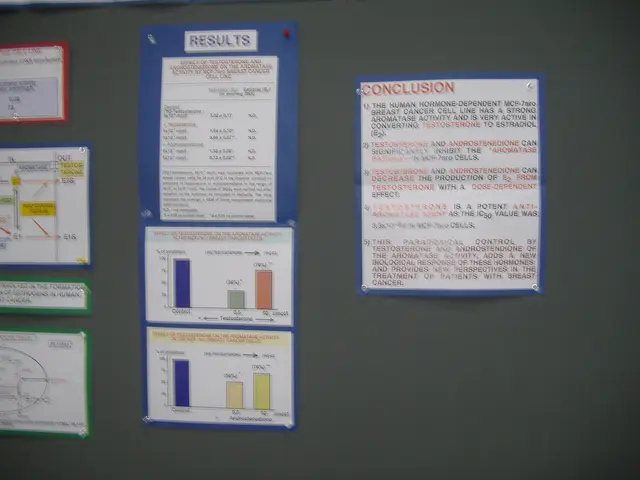Right-Wing Consensus Remains Intact - Yet, Identity of the Core Sector Under Scrutiny
In recent years, far-right populist parties have made substantial gains across Europe, shaking up the political landscape. These parties, while varied in their specific policies, share some key economic characteristics.
One of the defining features of far-right parties is their emphasis on economic protectionism and nativism. They prioritise protecting national industries and jobs from foreign competition and immigration, often through tariffs or restrictions on imports and opposition to globalization perceived as harming domestic workers.
However, these parties are not strictly anti-capitalist. Many also favour liberalizing economic regulation and promoting free-market policies as a way to empower native capital and reduce state intervention. This tension creates inconsistencies, with some parties supporting a globalist free market agenda alongside nationalist policies.
Another notable characteristic is welfare chauvinism, where far-right parties advocate for limiting welfare benefits and social services to native populations only, excluding immigrants. This approach aims to appeal to working-class voters concerned about resource allocation.
Country variations exist in the implementation of these economic policies. Western Europe, for instance, sees anti-globalism, anti-immigration with welfare chauvinism, and mixed free-market views, as exemplified by the French National Rally (FN) and Germany’s AfD. In contrast, Eastern and Central Europe emphasise strong anti-communism, economic nationalism, and protectionism, as seen in Poland and Hungary.
Germany, for example, pursues free-market reforms with nationalist protective elements, reforming fiscal policies to support defence and infrastructure. Meanwhile, France and Italy are characterised by protectionism coupled with social welfare for natives, and a skepticism towards EU fiscal rules and migration.
Despite their shared characteristics, far-right parties are not uniformly coherent, and their economic policies sometimes entail contradictory positions. Critical political economists have made progress in understanding the nexus between economic elites and far-right populist parties, with some evidence suggesting that big business in Europe has historically supported far-right parties, particularly in Italy and Germany.
In the current political climate, the far right's apparent unity may conceal deeper cleavages between these parties, particularly in terms of the kind of economy they want for their countries. For instance, the Swiss People's Party, a national-conservative party, has a significant representation of directors and owners of small and medium enterprises, while the class character of far-right populist forces in the UK may be different, with strong ties to transnational capital.
Despite transnational networking, far-right parties rarely coordinate over policymaking at the EU level. The European Parliament elections this June saw far-right populists gain nearly a quarter of all seats, and far-right parties have strong parliamentary representation in most European countries, finding themselves in government in several nations, including Croatia, Finland, Hungary, Italy, the Netherlands, Serbia, Slovakia, and Switzerland.
However, far-right parties have adopted contrasting positions on issues such as the war in Ukraine and their countries' relationship with NATO or even the EU. For example, in Hungary, the dominant class fraction in the governing coalition has been certain fractions of the Hungarian business class, particularly the banking and construction sectors.
In conclusion, European far-right parties pursue a blend of economic protectionism for the national community, welfare chauvinism, and selective free-market liberalism, with variations driven by regional history and political contexts across Western and Eastern Europe. The far right's appeal lies in their ability to tap into economic and cultural insecurities, promising protection for the native population while promoting free-market reforms.
- The financial sector in Western Europe could potentially benefit from the far-right parties' emphasis on favoring native capital and promoting free-market policies, while simultaneously dealing with the challenges posed by their protectionist tariffs, restrictions, and opposition to globalization.
- Despite the European Parliament elections showing a unified front for far-right parties, the reality is that these parties differ significantly in terms of their economic principles, with some demonstrating stronger ties to transnational capital, and others to native business interests, as seen in countries like Germany and the UK.




